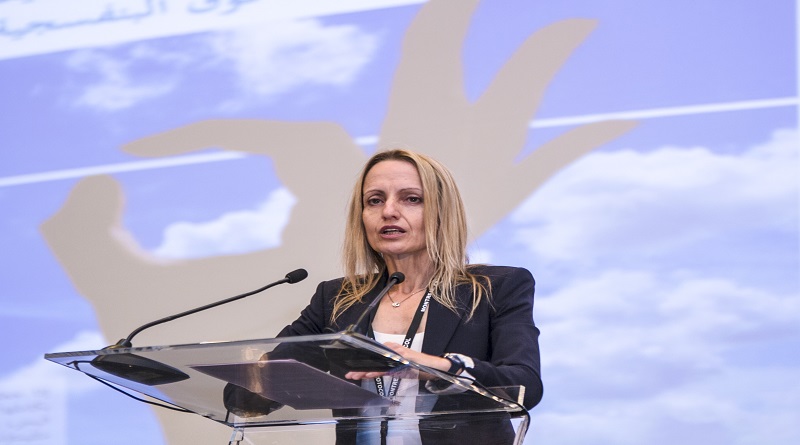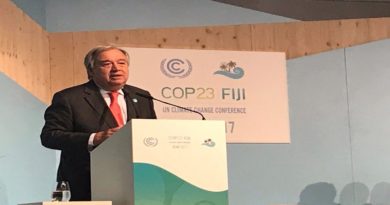Montreal Protocol celebrates another milestone as Kigali Amendment enters into force Jan. 2019
As the world marks the 30th anniversary of the Montreal Protocol, the treaty credited with saving the ozone layer is marking another milestone after the achievement of the threshold for entry into force of its Kigali Amendment, which seeks to phase down climate-warming hydrofluorocarbons (HFCs) while still protecting the ozone layer.
The milestone was reached on 17 November 2017, after the Amendment was ratified by 20 parties. The Amendment is now set to enter into force on 1 January 2019, requiring the nations of the world to gradually phase down HFCs by more than 80 per cent over the next 30 years and replace them with more planet-friendly alternatives.
Developed countries will start reducing HFCs as early as 2019, while developing countries will start later. Phasing down HFCs under the Protocol is expected to avoid up to 0.5°C of global warming by the end of the century, while continuing to protect the ozone layer.
“This is a big step forward for climate action and a sign that positive global environmental action is delivering results. So far more than 20 countries have worked hard to get this process off to a solid start, and we hope more nations will follow soon!” said Erik Solheim, head of UN Environment.
“There is no better way to celebrate the 30th anniversary than by celebrating the fulfilment of the condition for the Kigali Amendment to enter into force. I would like to congratulate and sincerely thank the parties who have ratified it for their leadership and the example that they have set as we will be working in the months and years ahead for the eventual universal ratification of the Kigali Amendment,“ said Tina Birmpili, head of the Ozone Secretariat.
21 parties have so far ratified the Kigali Amendment
The parties that have so far ratified the Amendment, listed alphabetically, are: Australia, Canada, Chile, Comoros, Democratic People’s Republic of Korea, Finland, Germany, Lao People’s Democratic Republic, Luxembourg, Maldives, Mali, Marshall Islands, Micronesia (Federated States of), Norway, Palau, Rwanda, Slovakia, Sweden, Trinidad and Tobago, Tuvalu and the United Kingdom of Great Britain and Northern Ireland.
Additionally, more parties are in the process of ratifying the Amendment. All prior amendments and adjustments of the Montreal Protocol have universal support.
“I am proud that Canada was among the first parties to ratify the Kigali Amendment,” said Catherine McKenna, Canada’s Minister of Environment and Climate Change. “With the amendment soon coming into force, the world could avoid half a degree Celsius of warming by the end of the century. This is a major step forward. And this week in Montreal – where countries are meeting for the 30th anniversary of the Montreal Protocol – we will celebrate this success and continue building momentum on global climate action.”
Montreal Protocol at 30: Identifying future opportunities and priorities
The 197 parties to the Montreal Protocol are gathering in Montreal from 20 to 24 November for the joint 11th Conference of the Parties to the Vienna Convention and the 29th Meeting of the Parties to the Montreal Protocol.
Environment ministers from around the world will participate in a ministerial round table discussion on the theme “Montreal Protocol at 30: Identifying future opportunities and priorities” on 23 November, after the opening of the high-level segment of the meeting at 10:00 a.m.
On the same day, from 2:30 p.m. to 4:00 p.m., top scientists from various countries will hold a panel discussion on the theme “The scientific foundation of the Montreal Protocol: past, present, and future”.
Every 10 years, the Ozone Secretariat gives awards to individuals and organizations that have demonstrated extraordinary commitment and contribution to the progress and achievements of the Montreal Protocol. The 30th anniversary Ozone Awards ceremony will take place from 6:30 p.m. on the same day.




